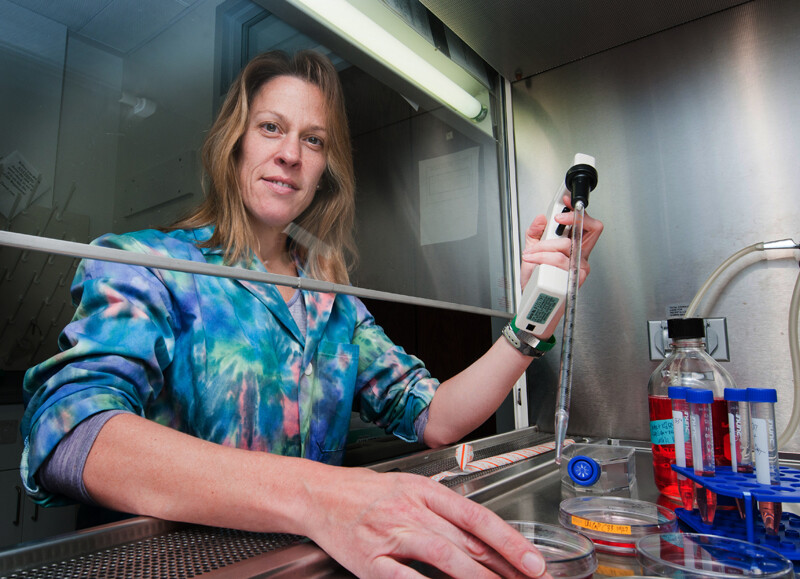
UNL’s Molecular Mechanisms of Disease Predoctoral Training Program is finishing its inaugural year with a spring symposium April 22-23.
The program, which is directed by Melanie Simpson, Rosowski Professor of Biochemistry, trains new scientists in concepts and methods pertaining to contemporary research in disease mechanisms. Trainees also focus on building team-oriented skills for working at disciplinary boundaries, such as communication, leadership and presentation.
The symposium will kick off with the Ackerson Lecture by Irving Wainer at 4 p.m. April 22 in the Beadle Center Auditorium, Wainer’s talk, which focuses on the biological, chemical and pharmacological journey from congestive heart failure to cancer, is free and open to the public. Wainer is an adjunct professor in the Department of Anesthesiology, Cooper Medical School of Rowan University and the Department of Oncology at McGill University.
The graduate training program, which began in August, spans seven departments across City and East campuses at UNL with four student fellows conducting research while learning the skills needed for interdisciplinary research careers. Simpson said she wanted to create a program that used interdisciplinary research to solve the puzzles of disease in humans, as well as provide a training ground for graduate students who want to pursue a career path of interdisciplinary research.
“As a training program, it’s intended to springboard students into what is becoming a more and more competitive research market, requiring complex multidisciplinary skills. The elements of the program really emphasize interdisciplinary training,” Simpson said in August.
The departments involved in the program are biochemistry, chemistry, biological sciences, chemical and biomolecular engineering, biological systems engineering and the Department of Food Science and Technology.
A full day of events April 23 starts in the Nebraska Champions Club. Keynote seminars will feature two invited speakers: Karin Musier-Forsyth of Ohio State University and Gerald Hart from Johns Hopkins University. Additional symposium activities include oral and poster presentations by the program trainees. The symposium activities April 23 are open to symposium registrants only, and registration has closed.
About 90 students, postdoctoral associates and faculty will be in attendance, with more than 50 student abstracts representing 32 different mentor labs from departments of Biochemistry, Chemistry, Chemical and Biomolecular Engineering, Biological Systems Engineering, Animal Sciences, School of Biological Sciences, and Food Science and Technology.
The purpose of the symposium is to foster interactions among faculty members, students and members of participating labs involved or interested in the study of disease mechanisms at the molecular level, and to showcase the talent and potential within this exciting new graduate program.







